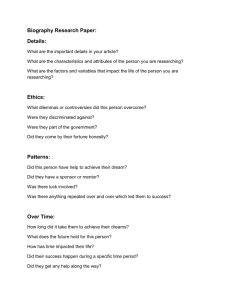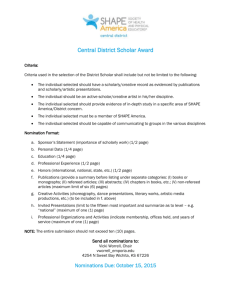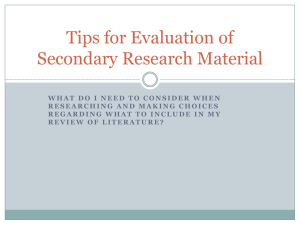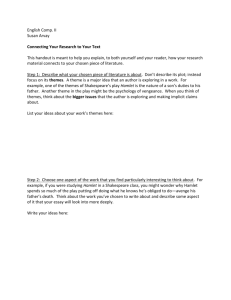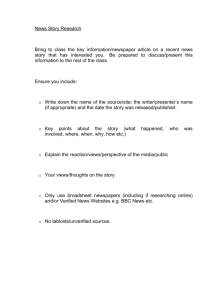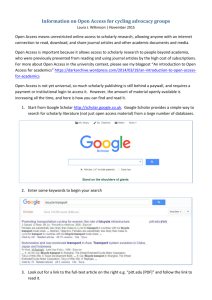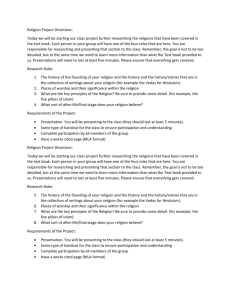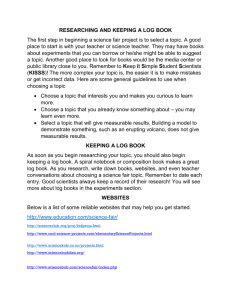Tj Mooney Invitation to Inquiry Reflection Prior to entering this class
advertisement
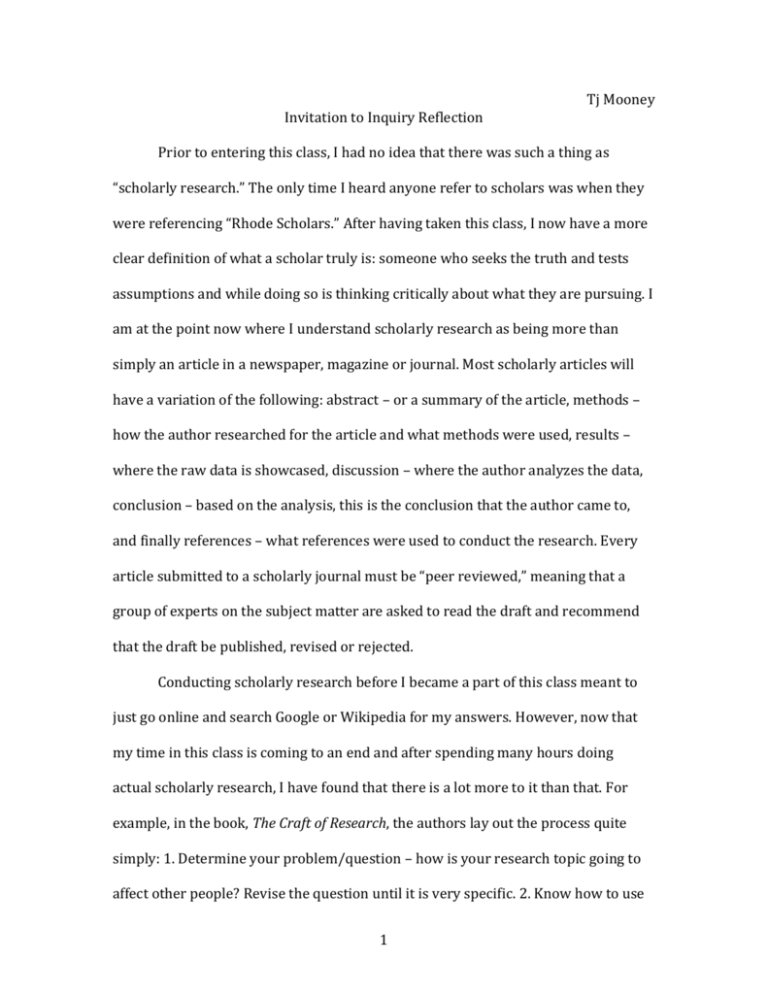
Invitation to Inquiry Reflection Tj Mooney Prior to entering this class, I had no idea that there was such a thing as “scholarly research.” The only time I heard anyone refer to scholars was when they were referencing “Rhode Scholars.” After having taken this class, I now have a more clear definition of what a scholar truly is: someone who seeks the truth and tests assumptions and while doing so is thinking critically about what they are pursuing. I am at the point now where I understand scholarly research as being more than simply an article in a newspaper, magazine or journal. Most scholarly articles will have a variation of the following: abstract – or a summary of the article, methods – how the author researched for the article and what methods were used, results – where the raw data is showcased, discussion – where the author analyzes the data, conclusion – based on the analysis, this is the conclusion that the author came to, and finally references – what references were used to conduct the research. Every article submitted to a scholarly journal must be “peer reviewed,” meaning that a group of experts on the subject matter are asked to read the draft and recommend that the draft be published, revised or rejected. Conducting scholarly research before I became a part of this class meant to just go online and search Google or Wikipedia for my answers. However, now that my time in this class is coming to an end and after spending many hours doing actual scholarly research, I have found that there is a lot more to it than that. For example, in the book, The Craft of Research, the authors lay out the process quite simply: 1. Determine your problem/question – how is your research topic going to affect other people? Revise the question until it is very specific. 2. Know how to use 1 the three different kinds of sources – a. Primary sources, the raw data. b. Secondary sources – research reports that use primary data to solve problems. c. Tertiary sources – books and articles that report on secondary sources for general readers. 3. Determine how long you have to complete your project. 4. Locate the different kinds of sources that you will be using. 5. Read in detail the sources you find. 6. Write your thesis statement. Research sometimes will change from one discipline to the next for example, Katie taught us that if you are doing research for a scientific question/hypothesis you should be looking for experiments or scientific journals. From the Lane faculty panel that came to class in February, we learned about several different kinds of research and the differences between the varied disciplines. In English or literature research, you want to look at the research using different “lenses,” so that you are able to see the problem or question through different points of view and by doing so, this will help you remain objective. For social sciences, you need to look at the data “for what it is,” again remaining objective. In scientific research, look at how the experiments were done and how the data is displayed, all the while making sure that you are keeping track meticulously. Underneath all of the different ways of researching, the actual art of researching does not change; all research needs to look to multiple sources, evaluate the sources, and most importantly, stay objective throughout the project. Nadia taught us that we should be aware of assumptions. As a scholarly researcher, be aware of how the question is phrased, is it implying an answer before you actually answer it? 2 My understanding of exactly how to gather the information and evaluate the different sources changed drastically over the course of the term. In the beginning, like I stated previously, I would simply do a Google or Wikipedia search for any research that I needed to do and that was sufficient, but thanks to Jen K. and Ce, I know that those are not ways of finding reliable sources. I’ve learned that by using a research database, you can find peer reviewed journal articles and if you are going to search Google, search Google Scholar instead. I have learned how to search a library database, such as when you need a specific book or any other source that isn’t available on the Internet as libraries contain many hard to find books. After you find sources, it is important to evaluate these sources; are they peer reviewed and from a trusted source? Does the article/source have a list of references? If so, evaluate them. When was the article published? Is it still relevant to today’s world? Do a little bit of research into the author, where do they work? How long have they been in this field? Have they written any other articles that you are able to find? At the start of the term, I had my own assumptions about academic research; that it was easy and that all sources must be reliable or they wouldn’t have been published. Doing research for my own project, I found this to be the polar opposite of what academic research is. Researching for my project essentially consumed my life for the first two weeks that we were told to start the researching process. This lasted until I devised a plan to schedule research into my daily schedule so that I had a time when I would begin and a time when I would stop. I came to the conclusion that the way I had been doing research prior to this class would not cut it for college level research papers and that needed to change. In the beginning, I didn’t bother to 3 look at whether or not the author was being objective or whether or not the author had valid sources. My own researching for this class shined light on my errors when I did my first Google search and all I was finding were opinion pieces by authors who were not remaining objective about the subject matter. After about the first week of the project, a light bulb went off in my head and I came to the realization that I needed to unlearn everything that I was taught about researching in high school. About three weeks into researching my project, I was taken aback by how lengthy the research process is, but also how fun it can be. I found researching to be enjoyable because I actually liked having to track down good sources, and evaluate different websites and authors; I felt like a detective. During the first week of class, Ce asked us, “What do you think of when you hear the word scholar?” I had never heard the term outside of a Rhode Scholar, so I kept quiet and didn’t say much to the class. After having completed researching my question, “Is Russia a military threat to the security of the United States?” I would say that I am a scholar to this specific question, but also a scholar of how to research. Going back to the first week of class, when we were asked, “What is a community of scholars?” Truthfully, I was scared that I would get called on to answer the question, because I had no idea what the question meant, let alone be able to speak in front of the class. After researching my topic endlessly online and in the library, I am now able to not only understand what the question is asking, but also hoping to get called upon because of how much I learned during this adventure. I hope that I am able to take what I learned while researching for this project with me throughout my entire 4 college experience and what it taught me about thinking critically and testing assumptions. 5
